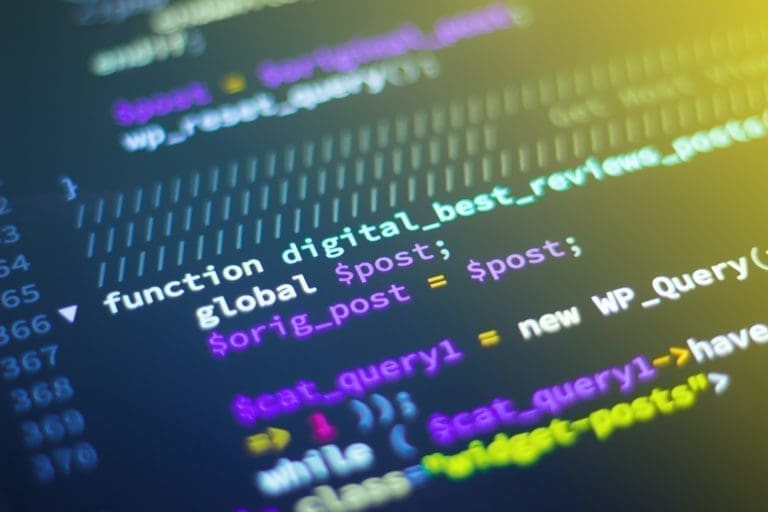There’s no doubt that the lessons COVID-19 has taught the world have been plentiful, often painful, but very valuable.
The data science function has certainly not been left out when these often-hard lessons have been handed out over the past few months.
Fortunately, though, as with every challenging experience, if one is willing to seek the value from it, and use it to drive positive change and transformation, you emerge stronger and better prepared for any similar situation in the future.
And against the COVID-19 backdrop this is particularly true for data science teams and departments, but also for the businesses that employ them and the way in which these businesses and teams relate to each other.
One of the most significant lessons that the pandemic has taught business people and data analysts across the world is that data is not necessarily the silver bullet solution to every challenge that many organisations have come to believe it is.
COVID-19 was a completely new global scenario, the likes of which nobody alive today had ever experienced before, and that none of us could ever have anticipated. From an analytics perspective, this meant, quite simply, that no data existed that could be used to precisely model anything relating to the pandemic or its likely impacts.


Obviously, as an event like Covid-19 progresses, more data becomes available, and modelling and predictions become slightly more possible, but not necessarily 100% reliable.
The key takeaway of this post-COVID-19 insight is that it may be necessary for businesses, and even data scientists, to dial back their expectations of data analytics to more realistic levels.
That may sound somewhat controversial coming from someone who makes his living in the data science field, but it’s vitally important to have a realistic understanding of our industry and the role it plays in business.
If there’s one COVID-19 lesson that we all need to take to heart, it’s that we must guard against falling into the trap of becoming entirely dependent on data as the sole source of information for the business decisions we make. When businesses allow that to happen, the very real potential exists for data to be transformed from a value-adding tool to significant business risk.
And what makes such risk even more dangerous is that it will only be fully revealed in a situation, such as COVID-19, where a lack of data can cause total decision-making paralysis.
Another important lesson delivered by the stern COVID-19 taskmaster is that irrespective of the industry you’re in, digitisation is no longer a ‘nice-to-have’ it’s an imperative. And it has to happen now. For a long time leading up to the pandemic, businesses in many industries were talking about the need for digitisation, or gradually rolling out their digital strategies.
Most of those businesses were caught with their proverbial pants down, and are now having to find ways, and budgets, to quickly get up to speed in terms of digitising every aspect of their business possible.
The business that fails to do this, or does it too slowly, will not just raise the risk of complete failure the next time a global crisis occurs; it will effectively ensure its own competitive failure and, in a very short time, its the inability to operate at all.
The third vital COVID-19 lesson has less to do with data and digital and everything to do with people. The data analytics field is not typically full of chatty extroverts known for their superior communications skills. Most who choose data science as a career path do so because of their love of science, research and critical thinking, and their preference for getting the job done over talking about how they intend doing so.
However, for many organisations, the COVID-19 crisis revealed a glaring need for far better, and more honest, dialogue between data analysts and business and marketing professionals – particularly when it comes to managing expectations, setting boundaries and making sure everyone is on the same page when tackling a business challenge.
The bottom line is that, for the most part, businesses need to work on becoming far more adept at clearly communicating exactly what they need from their data analysts. Data analysts need to become far more vocal in expressing whether they can deliver those needs within the parameters required. Under a business as usual scenario, the time, budget and human resources exist to smooth over the gaps and reach a mutually acceptable outcome.
But as COVID-19 showed us when a crisis occurs, time and resources are a luxury few have at their disposal; and the only realistic substitutes are clarity and honesty. And when these are applied properly, and data scientists are open at the outset about what they believe can, or can’t, be done, a business can prepare itself for the possibility that the required outcomes may not be achieved – and make timeous contingency plans.
COVID-19 is being widely touted as the catalyst the world needed to make the changes it must. This is true of the world of data science too. And while the changes required in our industry may not be as dramatic as those demanded of global economies and ecosystems, they are just as important to those who work in, or with, the data analytics field.
At the very least, COVID-19 should prompt us to pause for a few moments, step back from our work, and honestly assess what it is that we are trying to achieve in partnerships with the businesses and consumers we serve.
I have every confidence that simply by doing that and internalising the lessons we have learned, the value delivered by data science can be significantly increased going forward, without sacrificing the sanity or wellbeing of those delivering it.
- Dr Yudhvir Seetharam, Head of Analytics, Insights and Research: FNB Business
